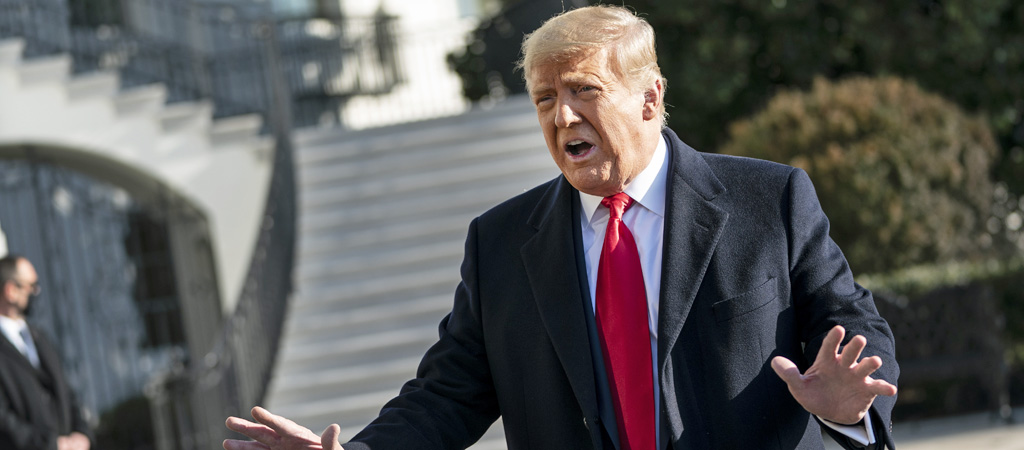
As Donald Trump left office in January, the legal challenges facing him began mounting. While much of the focus has been on his own unproven and off-base claims of election fraud, it seems he is more likely to face bigger issues with regards to taxes and some fibbed numbers on property values offered to lenders.
According to Michael Sisak of The Associated Press, one of Trump’s lesser known properties, Seven Springs, is under scrutiny by two different New York state investigations. The property, which Trump purchased for $7.5 million in 1995, had many proposed uses, from a golf course to a neighborhood of mansions, all of which were thwarted by community opposition — he also once planned to allow Libyan dictator Moammar Ghadafi to camp there for a U.N. visit when no one else would allow him to stay at their hotel, but that likewise fell through. That last bit isn’t important to the story, but I found incredibly fascinating.
Anyway, the investigations into the property stems from testimony that former attorney Michael Cohen gave to Congress in 2019 that indicated Trump had inflated the alleged value of the property to get a larger loan in an attempt to put together a bid to buy the Buffalo Bills. His failures to get into NFL ownership have long nagged at Trump, and his 2014 attempt to buy the Bills never came close to reaching the needed price tag of $1.4 billion (he reportedly offered $800 million, but other reports indicate he never even got a firm offer in), but he did start a feud with Jon Bon Jovi.
Cohen testified that Trump had financial statements saying Seven Springs was worth $291 million as of 2012. He gave copies of three of Trump’s financial statements to the House Committee on Oversight and Reform during his testimony.
Cohen said the statements, from 2011, 2012 and 2013, were ones Trump gave to his main lender, Deutsche Bank, to inquire about a loan to buy the NFL’s Buffalo Bills and to Forbes magazine to substantiate his claim to a place on its list of the world’s wealthiest people.
Trump, on his annual financial disclosure forms while president, said the property was worth between $25 million and $50 million.
That’s obviously a pretty wild difference to claim a property that is maybe worth $50 million. The AP story notes that even that is in dispute by the state, which had assessed the entire property value at $20 million back in 2015, when Trump had received a $21 million in a tax credit for preserving 158 acres as conserved land when a private evaluator priced it at $56.5 million. It would be rather incredible, albeit completely unsurprising, if the thing that were to lead to the most concrete legal issues for Trump after his presidency was inflating property values solely for vanity purposes — remaining on the Forbes list and trying to put in a bid to buy the Buffalo Bills that never stood a chance.
